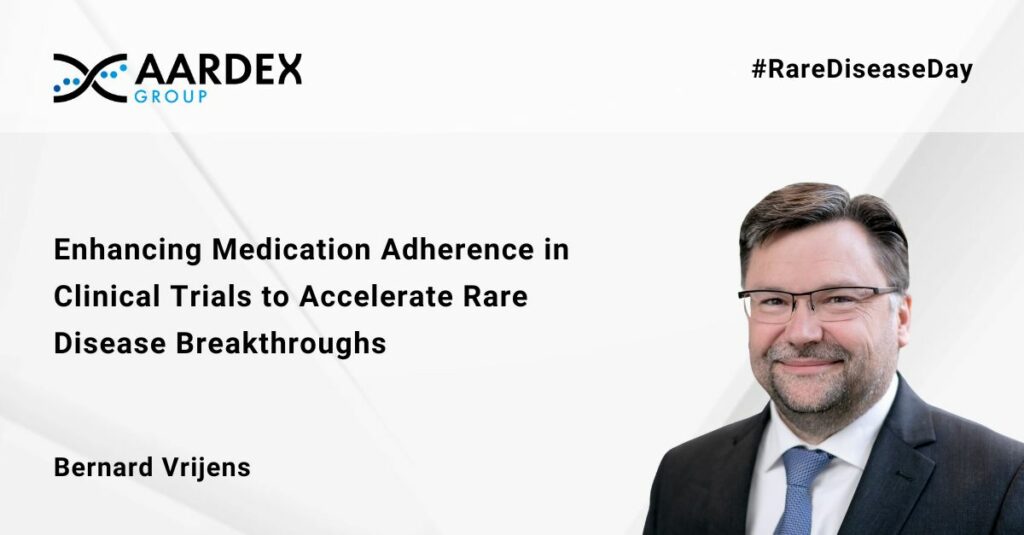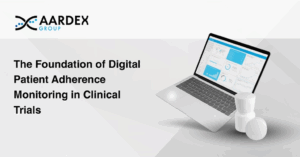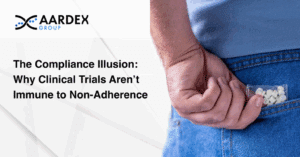In observance of Rare Disease Day, it is imperative to underscore the progressive strides within the domain of rare disease research. Rare diseases, characterized by their infrequent occurrence within the general populace, impose significant burdens not only on the affected individuals but also on the healthcare systems tasked with their management. These diseases, often complex and poorly understood, necessitate a concerted effort to unravel their pathophysiology and to develop efficacious treatments.
This piece revolves around the quintessential role of medication adherence within the ambit of clinical trials tailored to rare diseases. Medication adherence, defined as the extent to which patients take medications as prescribed by their healthcare providers, is a critical determinant in the evaluation of therapeutic interventions’ efficacy and safety. In the context of rare diseases, where patient cohorts are inherently limited and geographically dispersed, the adherence to medication regimens becomes even more crucial. It not only influences the integrity of the trial outcomes but also shapes the trajectory of drug development and approval processes. Hence, this article endeavors to illuminate the multifaceted challenges and methodologies pertinent to enhancing medication adherence, thereby fortifying the foundation of rare disease clinical research.
The Unique Challenges of Rare Disease Clinical Trials
Navigating the landscape of clinical trials for rare diseases presents a series of distinct hurdles, primarily stemming from the inherent characteristics of these conditions. The scarcity and heterogeneity of rare diseases create a scenario where patient populations are not only limited in number but also geographically scattered. This dispersion poses significant logistical challenges, from the establishment of trial sites to the consistent engagement of participants.
Moreover, the diagnostic odyssey associated with many rare diseases further exacerbates the situation. The often protracted and complex journey to a correct diagnosis means that by the time individuals are identified as potential trial participants, significant delays can impact the timely initiation and progression of clinical studies. This diagnostic ambiguity also complicates the eligibility criteria for trials, as the phenotypic variability within even a single rare disease can be vast.
These elements collectively amplify the difficulties in executing clinical trials that are both robust and conclusive. Ensuring the collection of high-quality, reliable data from such a constrained and variable patient base demands innovative trial designs and methodologies. It necessitates a flexible and adaptive approach to clinical research, one that can accommodate the unique nuances of rare disease populations while still adhering to the rigorous standards of scientific inquiry.
Importance of Medication Adherence in Clinical Trials
The concept of medication adherence transcends the mere act of consuming prescribed treatments; it is a critical linchpin that ensures the integrity of study outcomes. Adherence encompasses the precision and consistency with which participants follow the treatment regimen, a factor that directly influences the interpretability and reliability of trial results.
The ramifications of suboptimal adherence extend far beyond individual participant outcomes, casting a shadow on the overall validity of the clinical trial. Instances of non-adherence can lead to ambiguous data, making it challenging to distinguish between the inefficacy of the therapeutic intervention and the variability introduced by inconsistent drug intake. Such ambiguities can obscure true efficacy profiles, complicating the statistical analyses essential for evaluating treatment effectiveness.
The broader consequences of non-adherence are multifaceted, affecting various stakeholders within the healthcare continuum. For regulatory authorities and pharmaceutical developers, it can result in the postponement or even denial of drug approvals, delaying the availability of potentially life-saving treatments. From an economic perspective, the need for extended or additional trials to compensate for compromised data integrity escalates healthcare costs, burdening both funding agencies and healthcare systems. Most critically, for patients, especially those afflicted by rare diseases, the delay in accessing effective treatments exacerbates their suffering and can lead to adverse health outcomes, underscoring the profound importance of fostering medication adherence within clinical trials.
Strategies for improving adherence in rare disease trials
Within the spectrum of strategies to enhance medication adherence, electronic monitoring systems stand out for their precision and real-time capabilities. These systems, often encapsulated within devices like smart caps for pill bottles, smart blisters or smart drug delivery devices, meticulously record the time and frequency of medication intake, offering an objective and detailed adherence dataset.
The European Network to Advance Best practices & Technology on medication adherence (ENABLE) is instrumental in developing guidelines that underscore the utility and implementation of electronic monitoring in clinical contexts. According to ENABLE, electronic adherence monitoring is not merely a tool for data collection but a multifaceted intervention that can significantly impact patient behavior and trial outcomes.
The network emphasizes the integration of electronic monitoring within a broader adherence support framework, advocating for the use of these technologies not as passive observers but as active components of an adherence-enhancing strategy. This involves feedback loops where patients receive motivational messages upon deviations in medication adherence, thereby directly influencing adherence behaviors.
Furthermore, ENABLE suggests the utilization of the rich data harvested by electronic monitoring for personalized adherence interventions. Healthcare providers and trial coordinators can analyze the collected data to identify patterns of non-adherence, enabling targeted support and counseling tailored to individual patient needs and challenges.
The adoption of electronic monitoring, guided by ENABLE network, not only elevates the accuracy of adherence measurement but also transforms these technologies into dynamic agents of patient engagement and support, fostering a more interactive and responsive approach to managing medication adherence in medical practice and clinical trials.
Broader Impact of Improving Medication Adherence
Elevating medication adherence has far-reaching implications that extend well beyond the immediate context of individual studies. Enhanced adherence directly contributes to the refinement of drug development processes, primarily by ensuring the collection of high-fidelity data that accurately reflects the therapeutic potential of investigational drugs. This precision in data collection facilitates a more streamlined evaluation and review process, enabling researchers and regulatory bodies to make informed decisions with greater confidence and speed.
The ripple effects of improved adherence also hold promise for expediting the journey of new therapies from the research phase to clinical application, particularly for rare disease communities. With clearer, more definitive trial results, the path to drug approval can be shortened, reducing the time it takes for innovative treatments to reach patients who have limited options. This acceleration is not just about bringing new drugs to market faster; it’s about offering hope and potentially life-altering interventions to individuals grappling with diseases that have historically been underserved by medical research.
Moreover, the systemic benefits of enhanced adherence extend to the optimization of resource allocation within research. By diminishing the need for extended or repeat trials due to unreliable data, resources can be redistributed to explore a wider array of therapeutic candidates or to delve deeper into understanding the nuances of rare diseases. This shift not only amplifies the efficiency of drug development but also broadens the scope of exploration within the rare disease sector, potentially uncovering new avenues for treatment and intervention
AARDEX’s Innovative Technology for Measurig Adherence
AARDEX applies a best-practice methodology, independent of any device package or software platform. Through our expertise in medication adherence and patient compliance, we acquire, monitor, analyse, guide, and interpret data to deliver absolute clarity and bring confidence to sponsors, trialists, and ultimately, patients.



